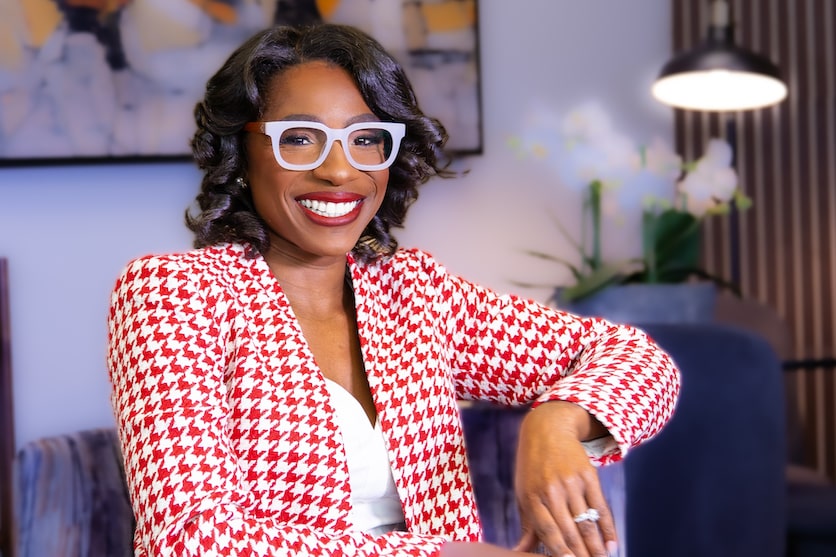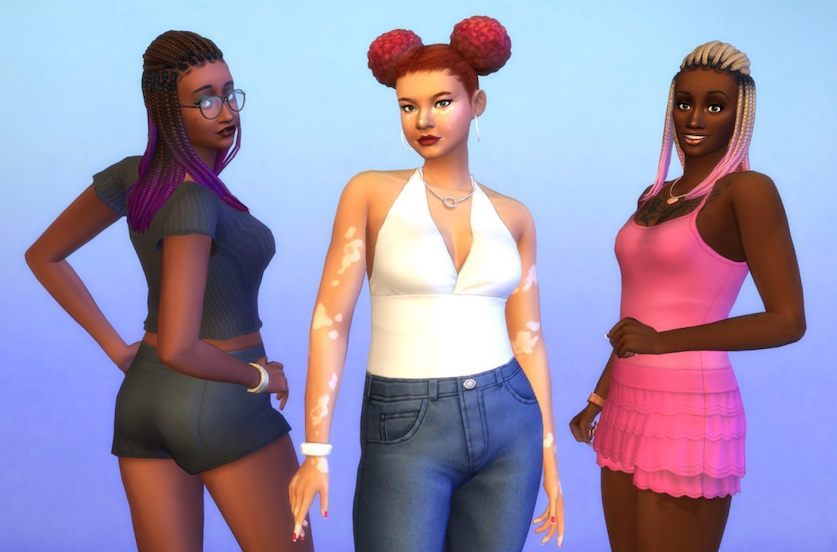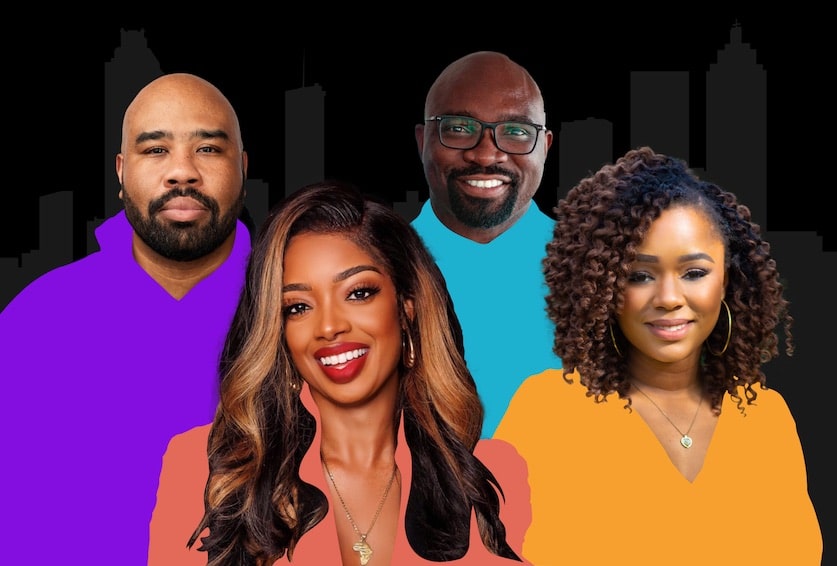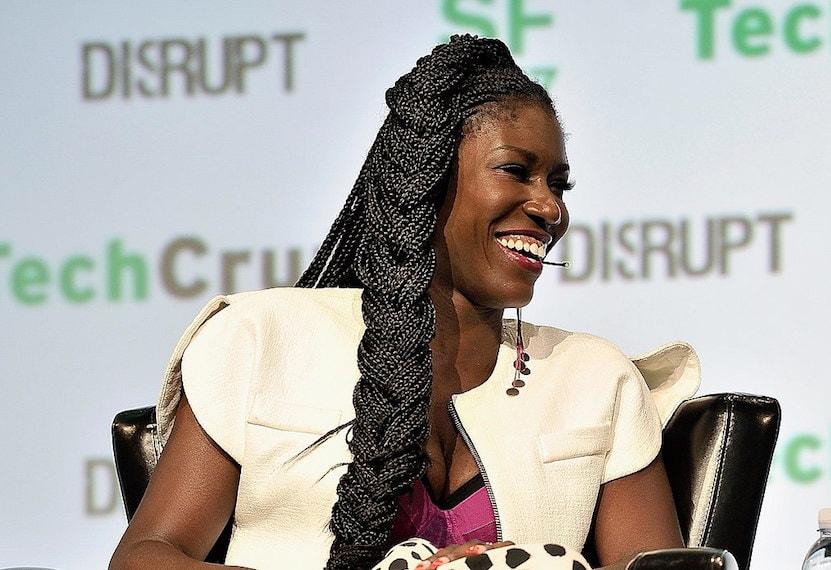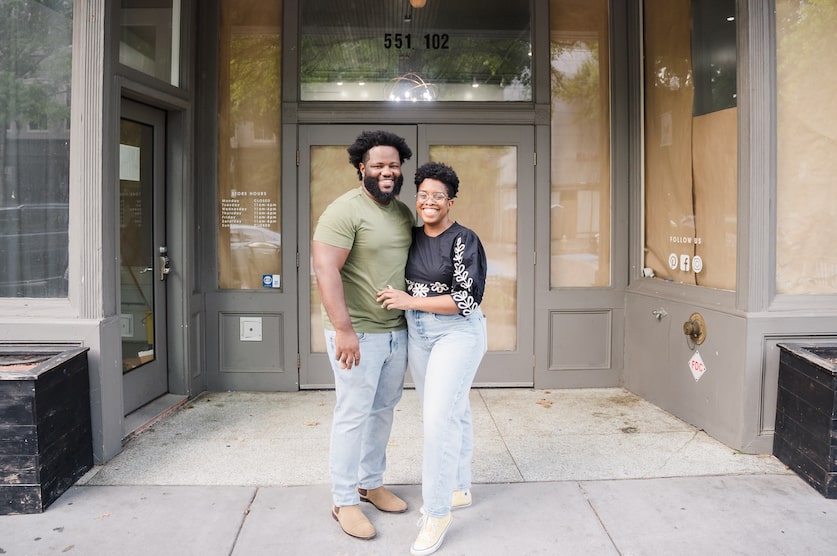
Black Woman-Led VC Firm Sixty8 Capital Announces Close of $20M Fund
May 11, 2021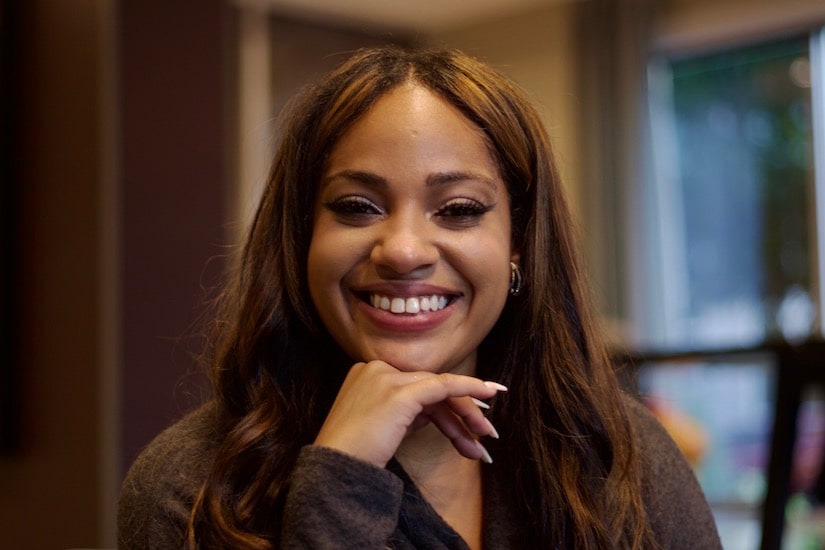
Career Coach Helms Recruiting Platform Knac to Help Remove Bias
May 25, 2021Disabled Millennial Revolutionizing Accessibility With Brilliant Mobile App

Social entrepreneur Brandon Winfield has turned his devastating accident into an opportunity to touch lives.
As a teen, Winfield was paralyzed from the waist down in a motocross accident. As he continued to compete across the country in his wheelchair he noticed many places are inaccessible for those who aren’t able-bodied.
In his twenties, Winfield decided to create his own accessibility app with business partner Sayeed Mehrjerdian. They have come up with a genius concept.
iAccess Life enables users to rate and review the accessibility of venues such as clubs, bars, public spaces, and restaurants. The idea is to empower people to “know before they go” so they can feel confident making plans.
“Many times, I would go someplace and the parking lot would be a nightmare,” said Winfield. “It might be situated on a hill that made it hard for me to get my wheelchair or I might be in a venue and I’d be bumping into chairs, tables, and people trying to maneuver my way to the bar. But one of the biggest things was not being able to use the bathroom. And it would become an issue.”
His journey dates back to 2008 when Winfield was a keen 14-year-old motocross rider who had dreams of turning professional when he reached 16.
He competed in several high-profile competitions, but one ride was to change his life. During one competition an accident left him paralyzed from the waist down. It was a crushing blow to his dreams of a career in the sport.
People With Disabilities Still Want To Have Fun
“My whole life was flipped upside down after the accident” Winfield recalls. “I’d been hurt a few times before, injuries to my wrist, collarbone, ankles, that sort of thing. But this time, as soon as I hit the ground I thought ‘this is going to be permanent. I remember thinking I was going to die because I’d punctured both my lungs after fracturing ribs on both sides. I couldn’t breathe and I couldn’t move my body, it was a disaster.”
A long and painful period of recovery and physical therapy followed. But after recovering Winfield was determined to “get back to normal life.”
“I’d just turned 15 and I still wanted to do fun things, I still wanted to hang out with my friends, go on dates with girls, and have fun,” he says.
“There’s a misconception that when you have a disability, you don’t go out and do fun stuff. A lot of people believe that people with a disability stay inside or have a caregiver that takes them places.”
Winfield’s accident was also the start of his entrepreneurial journey. As he continued his efforts to enjoy the social life he’d had before the accident, he realized that a significant number of local venues did little to accommodate the needs of people with mobility impairments as required by the Americans with Disabilities Act (ADA).
He continues: “If I went on dates as I got older, and we had some drinks, when I went to visit the bathroom, my wheelchair couldn’t fit in the door. If my friends wanted to check out a new place, I would always be the one to say, ‘hey guys, this isn’t accessible for me’, and we’d have to switch plans and go someplace else.”
2.7M wheelchair Users In United States
It was a surprising fact given that there are an estimated 2.7 million wheelchair users in America. In 2014, after thinking about the frustration he and others with mobility impairments faced over the lack of access to public spaces and venues he had a lightbulb moment – he would create an app as a way of tackling the issue head-on.
“I’d been thinking about this for a little while. Why wasn’t there a Yelp of accessibility? I thought, there needs to be an app.”
The first years after launching the app were characterized by a steep learning curve.
“I had no background in business or entrepreneurship but I just jumped straight into it and started researching mobile app developers” he recalls.
“Many times, I would go someplace and the parking lot would be a nightmare. It might be situated on a hill that made it hard for me to get my wheelchair or I might be in a venue and I’d be bumping into chairs, tables, and people trying to maneuver my way to the bar. But one of the biggest things was not being able to use the bathroom. And it would become an issue.”
As a result of that research Winfield quickly realized that it would cost him at least $40,000 to get even a basic app made, money he just didn’t have.
“It was super expensive. I decided instead to develop a prototype which most companies will do for between $3-5K. My dad introduced me to some people who had successfully developed and sold apps. I started working with them and they gave me a lot of background on how apps worked. They were willing to build the app for free and partner with me on the project.”
Ups And Downs Of Entrepreneurship
It was an encouraging step forward and Winfield’s app, called ParaPerks, began to take shape. But as many entrepreneurs know, getting a start-up business off the ground never goes as smoothly as one hopes, no matter how much planning you have done. Behind every successful entrepreneur is a story of trial and error, sometimes over several years. For Winfield, it was no different.
“I started working with them but I could tell that we weren’t on the same page about where we wanted this app to go,” he says. “I had a vision of this app as being the Yelp of accessibility, a place where people could come to it and know information about a venue before they went there. But they didn’t think I would ever get enough traction, they thought it was a very niche product with only a small user base.”
He continues: “It felt they were trying to put down my dream and vision for the app so it was a case of ‘thanks but no thanks. When I left my dad asked me if I knew what I was doing, especially as they were willing to work with me for free and I didn’t have the money to develop an app on my own. I told him I didn’t know what I was going to do but I was going to figure it out and find a way to do it.”
After a family friend invested $3000 to support him in creating another prototype of the app, Winfield began contacting as many potential investors and app developers as he could in a bid to get the idea of the ground.
It was through this process that Winfield met his business partner Mehrjerdian, who helped develop his ideas for the app even further.
Winfield’s Persistence Paid Off
Shortly after the two met they started working with a consulting group who said they would like to develop the app for a percent of the company. It was a deal that looked promising. However, Winfield faced another setback.
“They kept telling me for months that the app was almost done, but kept pushing the completion date back. Eventually, they gave us this very unfinished bug-ridden app that didn’t work. I eventually found out that the company had run out of money but they hid this from me. So we had a big blow-up and had to start again at square one.”
He continues: “It sucked because I’d been telling my friends and family about the app for so long and I’d been telling people that this consulting group was great. It was a major disappointment.”
Despite the disappointment, the determined young entrepreneur decided to get back to work and re-focus his efforts to get the app launched.
A name change followed – the app was now called iAccess Life. And his persistence paid off. One of the people Winfield had previously reached out to for business advice got in touch with him about an app development company that was impressed with what he was trying to do. They eventually offered him a deal.
iAccess Life Has Global Reach
Since the app’s launch on iOS and Android platforms in 2019, it has amassed over 5000 unique locations rated in over 45 states and 30 countries.
Among its features is a map view, populated with the most accessible establishments near your location, and a location profile that includes a venue’s address details. Users will also be able to give ratings for its entrance, access to bathroom facilities, and Interior seating.
Earlier this year, iAccess Life joined forces with another tech startup, North Carolina-based Passport. Its parking payment software will be integrated into the iAccess Life app.
“To me, the partnership is part of the ecosystem of getting people living with disabilities can get out so they can enjoy life,” says Winfield. “There have been plenty of times where I’ve gone to downtown Atlanta and the parking meter has been someplace I couldn’t get at. All you have to do now with parking in the iAccess Life app is find your parking lot, enter its number and you can pay for parking from your phone. Our goal with iAccess Life is to continuously seek out feature integrations like this partnership with Passport to make the lives of our users easier, as that is what will ultimately drive users to our platform and keep them using our app.”
Be sure to attend iAccess Life’s Disability Etiquette and Inclusivity Training on June 15th at 1pm EST. Register here.


